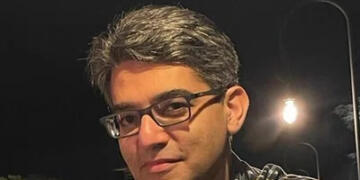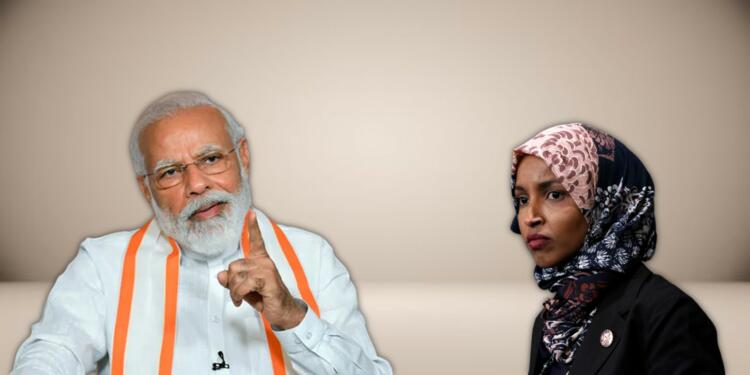Ilhan Omar: Prime Minister Narendra Modi’s recent visit to the United States has taken the spotlight in the global political theatre. While it has been marked by historic achievements, vocal protests, and a showcase of the emerging stature of India on the world stage, the broader reactions to these developments have been as multifaceted as the events themselves.
Let’s take a look at the various facets of PM Modi’s US visit, and understand why the popularity of the incumbent PM is far from over.
The unending woes of Ilhan Omar
PM Modi was welcomed by rather unusual guests. Minnesota 5th District Congresswoman Ilhan Omar and Michigan’s 12th District Congresswoman Rashida Tlaib have been the standard bearers for ‘political dissent’ in response to PM Modi’s visit, if we may call that. However, their vocal expressions of opposition, rooted in concerns about alleged minority repression in India, seem to have fallen on largely indifferent ears. They have been given as much attention as the White House gives to upholding the basic essentials of democracy.
Ilhan Omar, known for her fiery rhetoric and borderline anarchist views, made her disapproval clear by boycotting PM Modi’s address to the U.S. Congress. Instead, she organized a concurrent briefing with human rights groups to discuss what she perceives as a record of repression and violence under PM Modi’s government.
Also read: “Go and check out for yourselves”: White House’s stern message to rabble rousers on Indian democracy
Rashida Tlaib, a fellow Congresswoman known for her own staunch stance on human rights and minority issues, also chose not to attend PM Modi’s address. She voiced her disapproval of the visit, going as far as to label it as ‘shameful’. These actions, while significant in their own right, seemed to have evoked little reaction from both the U.S. and Indian public.
The flop show of Andolanjeevis [Videshi Cell]
Speaking of reactions, the political ‘Undertaker’ has risen again from his portable coffin! Bernie Sanders, known for his extremely socialist thinking, ‘condemned’ PM Modi’s government, alleging an infringement of civil liberties and a systematic repression of religious minorities’ rights. Despite the potentially explosive nature of his claims, they seemed to blend into the general cacophony of political noise, attracting limited attention.
Also, in the mix of voices expressing concern about PM Modi’s visit was U.S. Senator Pramila Jayapal, who led a coalition of more than 70 politicians urging President Biden to address human rights concerns in India. Probably that’s why she was given a cold shoulder by S Jaishankar.
Adding to the general tumult, a joint letter was dispatched to President Biden signed by 17 organizations and 75 Senators and Members of Congress. The signatories requested that the U.S. President either forgo hosting a State Dinner in PM Modi’s honor or raise specific issues during their meeting. The Indian American Muslim Council (IAMC), an organization linked to terror organizations in the past, also joined this vocal outcry. They took the radical step of writing a letter to President Biden, requesting the cancellation of the State Dinner invitation extended to PM Modi.
Despite the flurry of activism surrounding the visit, the drama has been received with relative apathy, signalling a significant disconnect between these protests and the wider perception of PM Modi’s visit to the United States. The impact of the protests seemed to have been largely mitigated, falling short of generating any significant change in the course of PM Modi’s visit or the wider U.S.-India relations.
PM Modi’s roar in the States
Amidst this backdrop of controversy, PM Modi’s visit to the U.S. has moved forward as planned, with him being the guest of honor for President Joe Biden and First Lady Jill Biden. On June 22, PM Modi iaddressed a joint session of the U.S Congress, making him the first Indian leader to be accorded this honor twice and just imagine the plight of the left liberals, who had to see a living nightmare in the form of PM Modi actually addressing a press conference, on his own terms!
Only a select few foreign dignitaries, including such iconic figures as Nelson Mandela and Winston Churchill, have had the privilege of addressing the joint session of the U.S Congress twice. As such, PM Modi’s address is viewed as a significant occasion that underscores the deepening relationship between the two nations, a relationship that appears undeterred by the controversy stirred up by some members of the U.S. Congress and other activist organizations.
Modi’s visit to the U.S. is a particularly notable event given the history of his relationship with the country. PM Modi was once denied a visa to the United States due to a vitriolic campaign of false allegations orchestrated by detractors. His return as a guest of honor, therefore, represents a major shift in U.S. sentiment towards him personally and towards India in general. This shift signals a broader realignment of international dynamics, indicative of an understanding that the United States needs to forge strong ties with an increasingly influential India in today’s rapidly evolving geopolitical landscape.
Also read: By calling Ajit Doval “an international treasure”, Biden has made his intentions absolutely clear
Prominent investor Ray Dalio captured the magnitude of this visit by highlighting the transformative potential that PM Modi brings to the table. Dalio spoke about the tremendous potential of India, the world’s largest democracy, and identified Modi as a reformer with the capacity and popularity to realize that potential. Dalio’s sentiments echo those of many who view Modi’s leadership as an opportunity for India to redefine its position in the world order.
The visit of PM Modi to the United States is more than just a diplomatic triumph. It serves as a testament to India’s rising power and influence, a trend that is set to redefine global dynamics in the coming years. Amidst the clamor of opposition and the din of political manoeuvrings, the fact remains that PM Modi’s presence in the United States marks a significant step forward in India’s international standing. It sends a clear message about the country’s growing significance on the world stage and underlines the importance of the deepening ties between two of the world’s largest democracies.
Support TFI:
Support us to strengthen the ‘Right’ ideology of cultural nationalism by purchasing the best quality garments from TFI-STORE.COM


























